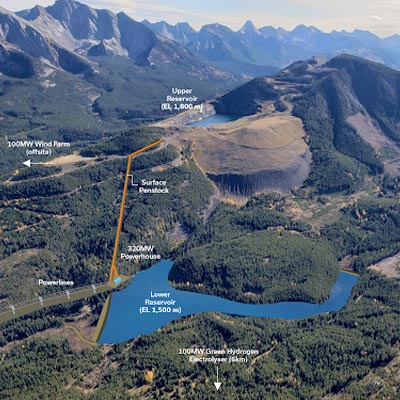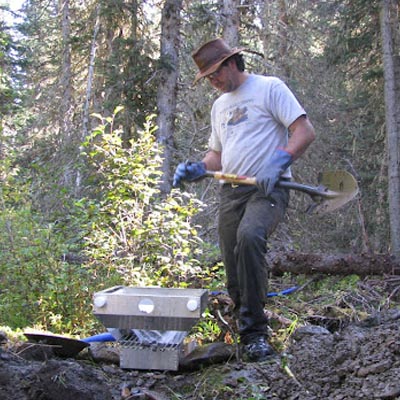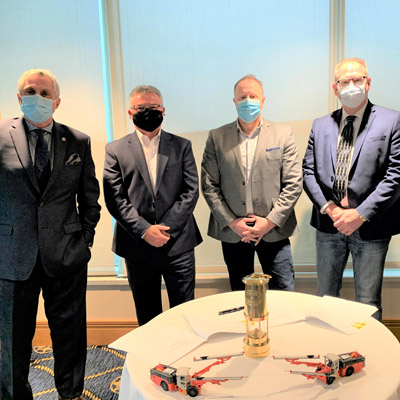Exploration in B.C. gets a boost
B.C.’s minister of energy and mines announces funding to Geoscience BC and discusses other important happenings in the industry

Bill Bennett, B.C.'s minister of energy and mines, announced $3 million in funding for Geoscience BC at Minerals North 2014. — Photo courtesy Government of British Columbia
British Columbia’s minister of energy and mines believes his government’s new $3-million investment in Geoscience BC will help rejuvenate B.C.’s flagging mining exploration industry. Bill Bennett made the announcement on May 22 in a speech at the Minerals North 2014 mining conference held in Vanderhoof, B.C.
During his speech, Bennett also talked about how B.C.’s mining industry is continuing to perform well despite a recent drop in commodity prices; how his ministry plans to start charging some mining and exploration firms permitting fees under the BC Mines Act, without hurting B.C.’s exploration industry; and how the BC Jobs Plan, announced by Premier Christy Clark in September 2011, is largely on track when it comes to mining.
Assistance where it's needed
Geoscience BC is an industry-led, non-profit society that works to attract mineral and oil-and-gas investment to the province by gathering, interpreting and distributing data through enhanced geological surveying. It aims to conduct surveys in areas of the province covered by overburden, where traditional exploration techniques prove difficult.
Exploration spending in B.C. fell from a record high of $680 million in 2012 to $476 million in 2013.
“That $3 million that we’re putting into Geoscience BC this year is actually one of the best investments with your tax dollars that we can make,” Bennett said.
In an interview after his speech, Bennett also said he hoped Geoscience BC would use the new funding to help secure another $3 million from the private sector to help finance the society’s work in 2014.
At least some of the new money will be used to support the continuation of Geoscience BC’s Targeting Resources for Exploration and Knowledge (TREK) project. That project uses aerial surveying to explore for new mineral deposits on a large section of land that lies south and west of Vanderhoof.
Bennett said recent mineral discoveries at New Gold Inc.’s Blackwater Project, 110 kilometres southwest of Vanderhoof, and the recent expansion of the Huckleberry copper/molybdenum mine, 123 kilometres southwest of Houston, are directly attributable to TREK’s activities.
In the case of Huckleberry, TREK found a new deposit very close to the mine.
“It added 10 years to the life of the mine,” Bennett said.
Challenges and some good news
Bennett also said it’s important to stimulate exploration activity at a time when mining in B.C. is suffering due to low commodity prices. Referring to a 2013 B.C. mining survey released in May 2014 by PwC (PricewaterhouseCoopers) Canada, Bennett said both revenues and earnings were down.
However, he said, the PwC survey contained some good news too. B.C. mines actually produced more coal and ore in 2013 compared to the previous year, and direct mine employment was up three per cent.
Weighing in on permitting fees
On the subject of the possible implementation of permitting fees under the BC Mines Act, Bennett said he was going to try very hard not to hurt exploration companies.
He said after he was appointed for his second stint as minister of energy and mines in June 2013, some of the government’s financial people wanted to raise additional revenue by charging mining and exploration companies permitting fees. The government currently doesn’t charge permitting fees under the BC Mines Act.
In the face of some stiff industry opposition, Bennett said, the government is rethinking its strategy. He plans to continue to work with industry to determine where the line should be drawn for companies that may need to pay permitting fees and for companies that may not.
He stressed he does not want to charge permitting fees on the smallest exploration companies working in the province, but said many larger companies wouldn’t mind paying fees if it meant better service.
Expanding job opportunities in mining
Finally, Bennett said his government was largely successful when it came to fulfilling its commitments to the mining industry under the BC Jobs Plan. When the premier first announced the plan in 2011, she said the province was committed to opening eight new mines and expanding another nine by 2015. The developments would create approximately 1,800 new mining jobs.
Bennett said since 2011, three new mines have opened— the Mount Milligan copper/gold mine, the New Afton copper/gold mine and the Copper Mountain copper mine—creating 1,195 direct jobs.
By the end of 2014, Bennett said, another three mines would be open—the Red Chris copper/gold/silver mine, the Roman metallurgical coal mine and the Yellow Giant gold mine—creating another 815 direct jobs.
He also said that with the startup of BC Hydro’s Northwest Transmission Line this summer, much more mining and exploration activity will follow in B.C.’s northwest.
“So talk it up and tell people that even with lower commodity prices, the industry is doing very, very well,” Bennett said.




